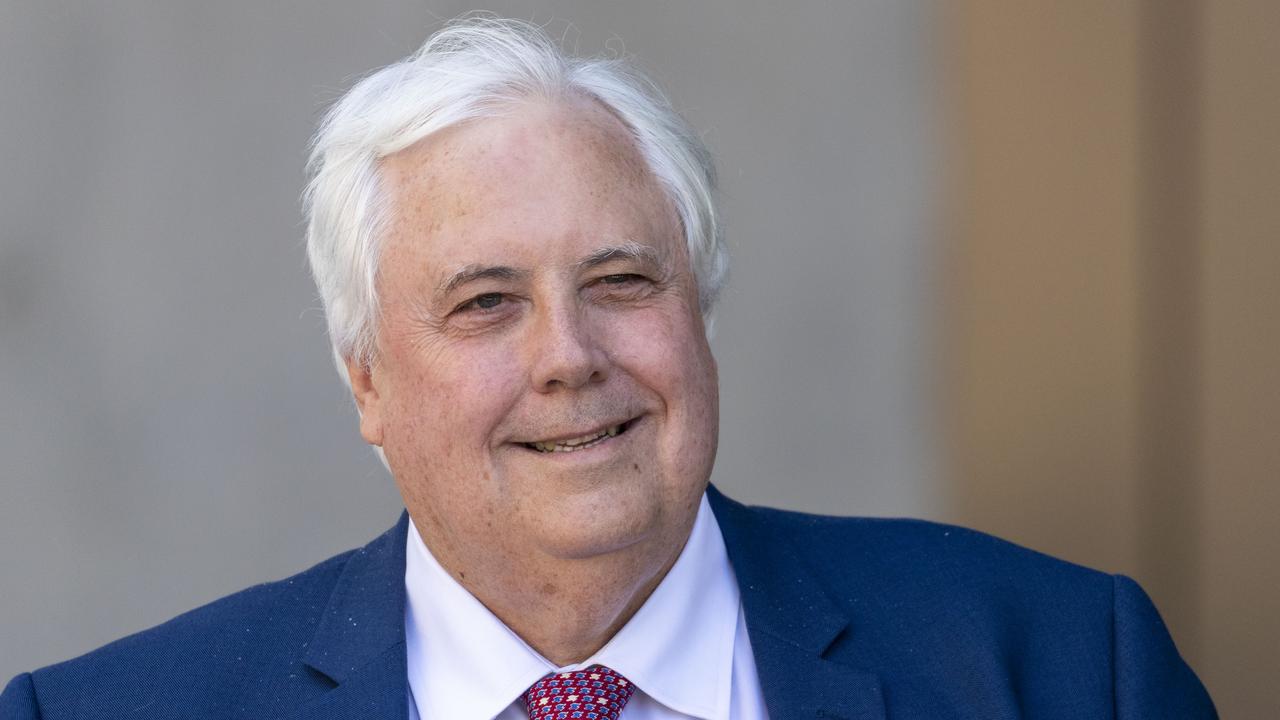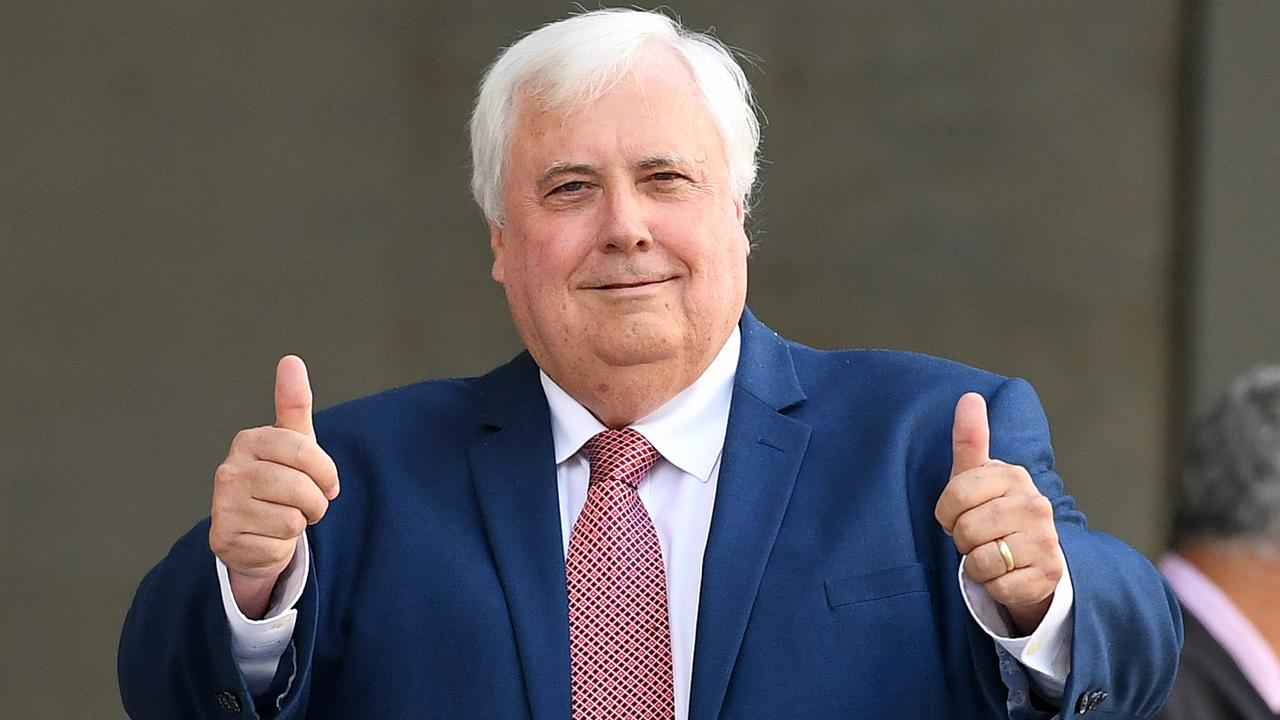Clive Palmer lawsuits could stall in overseas red tape
Liquidators will have to grapple with The Hague Convention to serve lawsuits on Clive Palmer’s international women.
Liquidators will have to grapple with The Hague Convention to serve their lawsuits on Clive Palmer’s international women of mystery, his Bora Bora resort and his Bulgaria-based father-in-law.
Four of the 21 defendants in the Queensland Supreme Court claim over the collapse of Mr Palmer’s Queensland Nickel are based overseas — in Kyrgyzstan, Bulgaria, Hong Kong and French Polynesia.
The claim seeks to recover Queensland Nickel money that Mr Palmer allegedly gave to mining consultant Evgenia Bednova in Kyrgyzstan (almost $1 million) for “representation fees”; his Bulgarian father-in-law Alexander Sokolov ($7.6m); Chinese woman Zhenghong Zhang to set up his company’s Beijing office ($4.5m); and his Bora Bora resort ($9.2m).
Although the lawsuit has been filed in the Brisbane court registry, the documents must be served on the defendants, no simple task when the people involved live overseas.
Since 2010, Australia has been a signatory to the 1965 Hague Service Convention, which is designed to make it easier to deliver legal documents internationally — but only to nations that have signed up.
Kyrgyzstan is not a signatory to the convention so lawyers for special-purpose liquidators PPB Advisory must follow the local law to ensure the documents are legally served on Ms Bednova in the city of Bishkek.
The convention allows lawyers in Australia to send judicial documents by post directly to overseas defendants or foreign “judicial officers, officials or other competent persons” to serve the documents on their countrymen. Each signatory state must have set up a central authority to deliver overseas legal documents.
Even when a country has signed the convention, there may be complications. In Bulgaria, for instance, where the father of Mr Palmer’s wife Anna is said to live, the documents must be translated into Bulgarian before they can be served. The Republic of Bulgaria also objects to documents being sent by post, and Australian diplomats and consular officials can serve documents only on other Australians there.
China is a signatory to the convention, which extends to Hong Kong, but there are extra rules for service in the special administrative region. According to Hong Kong’s regulations, PPB’s claim must go through judicial, consular or diplomatic channels to the Registrar of the Supreme Court of Hong Kong.
PPB Advisory declined to comment.



